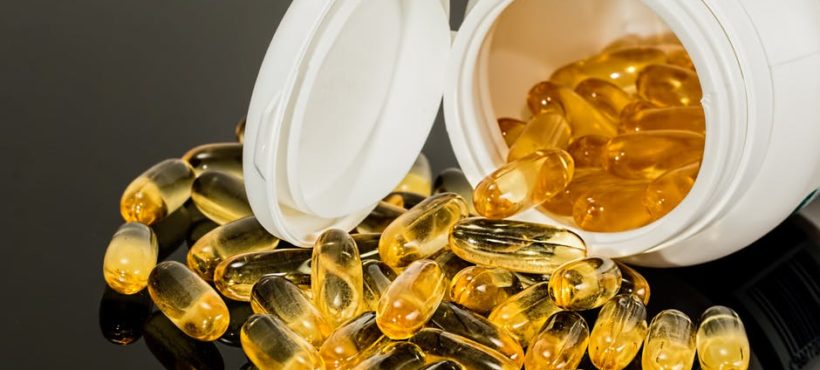
The Top 10 Symptom-Relieving Menopause Supplements and Medications
The average age for women to start menopause is fifty-one. It may, however, start as early as your 30’s or as late as your 60’s. Symptoms of menopause may include hot flashes, night sweats, mood swings, and anxiety. The regular upsets can take their toll on your family, work, and relationships. In addition to menopause supplements, there are a number of natural remedies that menopause sufferers turn to for relief.
Here are some of our picks:
1. Estrogen Supplements
Estrogen supplements, such as Premarin, may relieve hot flashes and vaginal discharge.
Beginning estrogen supplements in early menopause has positive effects on many women. It can also help with soreness, dryness, and urinary incontinence.
Estrogen can help with ovary failure, and can even protect your bones.
Long-term use may carry some cardiac and breast cancer risks, so it is important to discuss risks and benefits with your doctor before deciding on this treatment.
2. Vaginal Estrogen
Vaginal estrogen can get administered directly using a tablet, cream, or ring. Doses release a small amount of estrogen that gets absorbed directly into the vaginal tissue. It relieves dryness, soreness, and itching.
3. Calcium Supplements
Due to an increase in estrogen production after menopause, women’s bodies are less able to absorb calcium from food.
Calcium supplements can help maintain bone mass, prevent osteoporosis, and prevent calcium depletion. In addition to promoting bone health, calcium may protect against cancer, diabetes, and high blood pressure.
You may also want to put more effort into including calcium in your diet. Be sure to get enough green leafy vegetables, dairy products, and lean fish. If you have a special diet that excludes any of these items, calcium supplements may be more important.
4. Vitamin D Supplements
Vitamin D may be just as important as calcium in preventing bone loss during menopause. It may also protect against a decline in serotonin, which may contribute to hot flashes.
Vitamin D protects against a metabolic decline in menopause. This decline has been known to contribute to heart disease, stroke, and diabetes.
While you can get some Vitamin D from the sun, you won’t want to spend too much time outdoors in order to prevent skin problems. Consider adding natural sources of Vitamin D to your diet, including salmon, egg yolks, and orange juice.
5. St. John’s Wort
St. John’s Wort may reduce menopausal symptoms such as hot flashes. Too much of the supplement, however, has been known to cause anxiety, fatigue, and dizziness.
Consider adding some to your tea, or using a little St. John’s Wort oil, in order to get some relief without the side effects.
6. Ginseng
Ginseng has been proven to reduce hot flashes and night sweats in menopausal women. It may even help reduce the risk of heart disease.
Drinking ginseng tea daily will allow you to enjoy its benefits. Beware of side effects, including jitteriness, headaches, and nervousness.
7. Antidepressants
Low-dose antidepressants related to a class of drugs called serotonin reuptake inhibitors (SSRIs) may be useful for women who can’t take estrogen. This may include those with blood clots, heart disease, or a history of cancer.
Antidepressants may also be helpful for women in menopause who suffer from depression and other mood disorders.
8. Ginko Biloba
Ginko Biloba contains phytoestrogens, which can raise estrogen levels and prevent hormone imbalances. It can also help improve cognitive function in healthy people and those with dementia.
Ginko Biloba supplements are safe to take daily. You can also take some as part of an herbal tea blend.
9. Flaxseed
Flaxseed is a great source of lignans, which are plant-based compounds that have a weak estrogen effect. These have been known to ease hot flashes and other menopausal symptoms.
Flaxseed also contains fiber, fat, protein, vitamins, and minerals.
In addition to supplements, flaxseed can get sprinkled on a salad or added to muffin batters. You can also apply it as an oil.
10. Red Clover
Red clover can relieve hot flashes and breast pain or tenderness. It contains isoflavones, which are changed in the body to phytoestrogens that are similar to the hormone estrogen. Red clover can also get used for treating premenstrual syndrome, cough, and asthma.
Red clover can get taken as a supplement or tea.
Natural Relief
Good lifestyle choices can help prevent menopause symptoms in many women. Be sure to get enough sleep, and avoid too much caffeine and alcohol. Do not smoke, as this can lead to an increased risk of heart attack, stroke, and osteoporosis.
If you know that hot flashes are triggered by hot beverages, spicy foods, or other foods, avoid these as much as you can. Be sure to get enough exercise during the day, as this can serve to boost your mood and help with weight control.
Yoga can help improve your strength and coordination. It may also help prevent falls that can lead to broken bones. Yoga can relieve other menopausal symptoms including anxiety, irritability, and hot flashes.
Kegel exercises can strengthen your pelvic floor and help prevent incontinence.
Relaxation exercises can relieve anxiety and irritability. Learn to practice deep breathing, guided imagery, and muscle relaxation.
As always, self-care is critical to mental health during stressful physical times. That weekly blow-out or message can do a world of good in keeping you healthy and confident.
The Benefits of Menopause Supplements
Menopause supplements can relieve your hot flashes, mood changes, and discomfort during menopause. Talk to your doctor about the best options for you.
For more information about improving your health, read our blog today.


